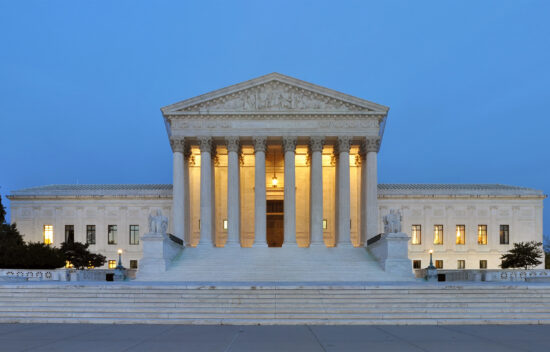
S.S.F.A v. University of North Carolina (2023)
Summary
In the landmark 2003 case of Grutter v. Bollinger, the Supreme Court ruled that giving special consideration to race in student admissions policy (known as affirmative action) was constitutional. This decision stood for 20 years but was overturned in June 2023 with the Supreme Court’s decision in the case of SSFA v. University of North Carolina and its companion case SSFA v. Harvard.
University of North Carolina had admission processes that instructed reviewers to consider race and ethnicity as factors alongside other academic, character, and extracurricular characterizations of applicants. They may give students a substantial “plus” in the race/ethnicity category should they believe it is warranted. Students were not required to list their race or ethnicity on their application, and the university did not have any race quotas for its student demographics. UNC argued that its policy was designed to promote racial diversity in its student body, which would bring educational benefits to all.
In a 6-3 decision, the Supreme Court ruled that UNC and Harvard’s policies of considering race and ethnicity in their admission process was unconstitutional. Chief Justice Roberts wrote the opinion of the Court, stating, “[UNC and Harvard’s] programs lack sufficiently focused and measurable objectives warranting the use of race, unavoidably employ race in a negative manner, involve racial stereotyping, and lack meaningful end points. We have never permitted admissions programs to work in that way, and we will not do so today… Many universities have for too long…concluded, wrongly, that the touchstone of an individual’s identity is not challenges bested, skills built, or lessons learned but the color of their skin. Our constitutional history does not tolerate that choice.”
Justice Sonia Sotomayor wrote a dissenting opinion, arguing that affirmative action policies that considered a student’s race and ethnicity would help bring about greater equality and were therefore justifiable. She wrote, “By ending race-conscious college admissions, this Court closes the door of opportunity that the Court’s precedents helped open to young students of every race… True equality of educational opportunity in racially diverse schools is an essential component of the fabric of our democratic society. It is an interest of the highest order and a foundational requirement for the promotion of equal protection under the law.”
Analysis Questions
1. Describe the admissions policy that UNC had that was challenged in court.
2. How did the Court rule? Do you agree with their ruling? Why or why not?
Big Idea Question
- Do you believe affirmative action upholds or violates the principle of equality? Explain your answer.
Extension
- Have students watch the Homework Help video on Regents of the University of California v. Bakke (1978). What similarities do they notice between this case and the case involving UNC? What differences?



